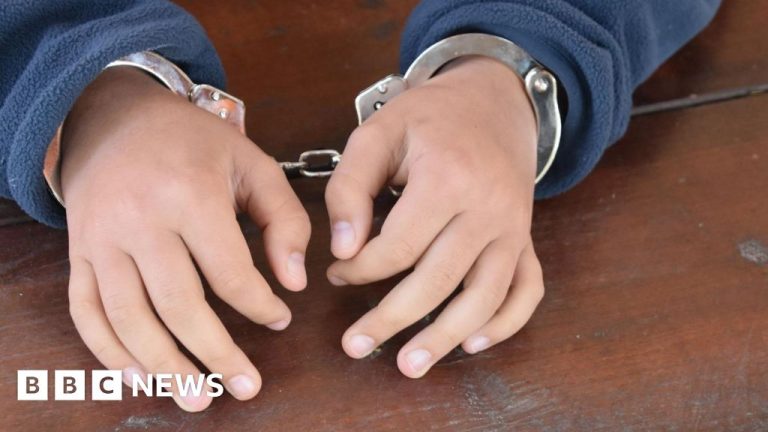The Australian state of Queensland has passed laws that provide that children as young as 10 years old will be subject to the same penalties as adults if convicted of crimes such as murder, serious assault and housebreaking.
The government says the tougher sentencing rules respond to “community outrage at crimes committed by young offenders” and will have a deterrent effect.
But many experts have pointed to research showing that harsher penalties do not reduce youth delinquency, but may instead exacerbate it.
The United Nations has also criticized the reforms, arguing that they fail to comply with conventions on children's human rights and violate international law.
The Liberal National Party (LNP), which won national elections in October, made the rules a feature of its campaign, saying they put the “rights of victims” ahead of “the rights of criminals”.
“These laws are for all Queenslanders who have ever felt unsafe and have been victims of juvenile offending in our state,” Premier David Crisafulli said after Parliament passed the bill on Thursday.
Before the vote, both political sides said Queensland was struggling with a youth crime wave and a more punitive approach was needed to combat the problem.
But data from the Australian Bureau of Statistics shows youth crime has halved in Queensland over the past 14 years, hitting its lowest rate in recorded history in 2022 and has remained relatively stable since then.
Figures from the Queensland Police Service and the Australian Institute of Criminology also demonstrate a clear downward trend.
Dubbed by the government 'adult crime, adult time', the new laws list 13 offenses which will now carry harsher prison sentences when committed by young people, including mandatory life imprisonment for murder , with a non-parole period of 20 years.
Previously, the maximum sentence for young offenders convicted of murder was 10 years in prison, with life imprisonment only considered if the crime was “particularly heinous”.
The laws also remove “detention of last resort” provisions – which favor non-custodial orders, such as fines or community service, for children rather than incarceration – and will allow judges to make considers a child's entire criminal history when sentencing.
The Queensland Police Union called the changes “a step forward in the right direction”, while Queensland's new Attorney-General Deb Frecklington said it would give courts the opportunity to “deal better with types delinquency” and “holding people accountable for their actions”. .
But in a summary, Frecklington also noted that the changes were in direct conflict with international standards, that indigenous children would be disproportionately affected and that more young people were at risk of being detained in police cells for long periods because detention centers are full.
Queensland already has more children in detention than any other Australian state or territory.
Prime Minister Crisafulli said on Thursday that while there may be “short-term pressures”, his government had a long-term plan to “put in place a series of other detention centers and different options”.
Australia's children's commissioner, Anne Hollonds, called the changes an “international embarrassment.”
She also accused the Queensland government of “ignoring evidence” which suggests “the younger a child comes into contact with the justice system, the more likely they are to go on to commit more serious crimes”.
“The fact that the provisions (of the bill) target our most at-risk children makes this rollback of human rights even more shocking,” she said in a statement Wednesday.
Other legal experts, who testified at a parliamentary hearing on the bill last week, said the laws could have unintended consequences for victims, with children less likely to plead guilty given the penalties. more severe, which would lead to more trials and longer legal delays.

